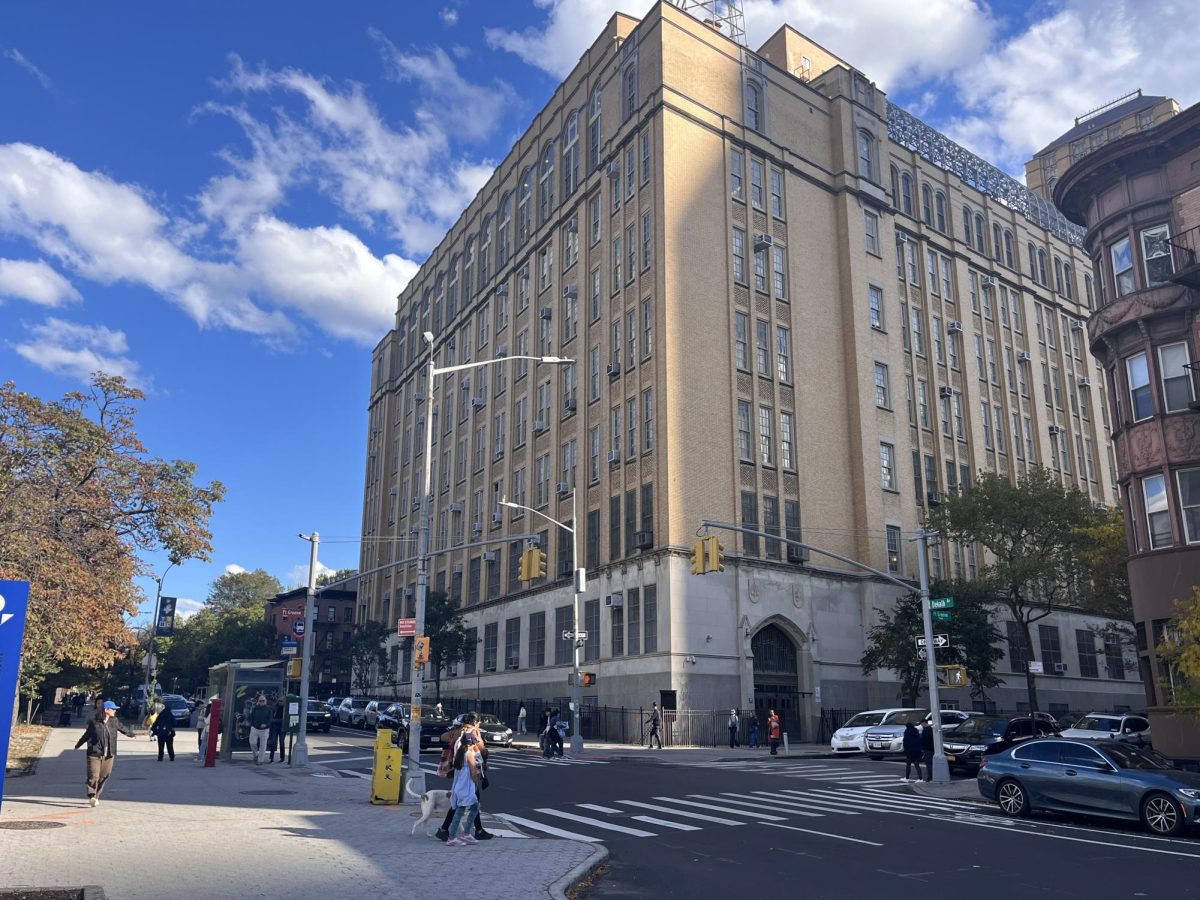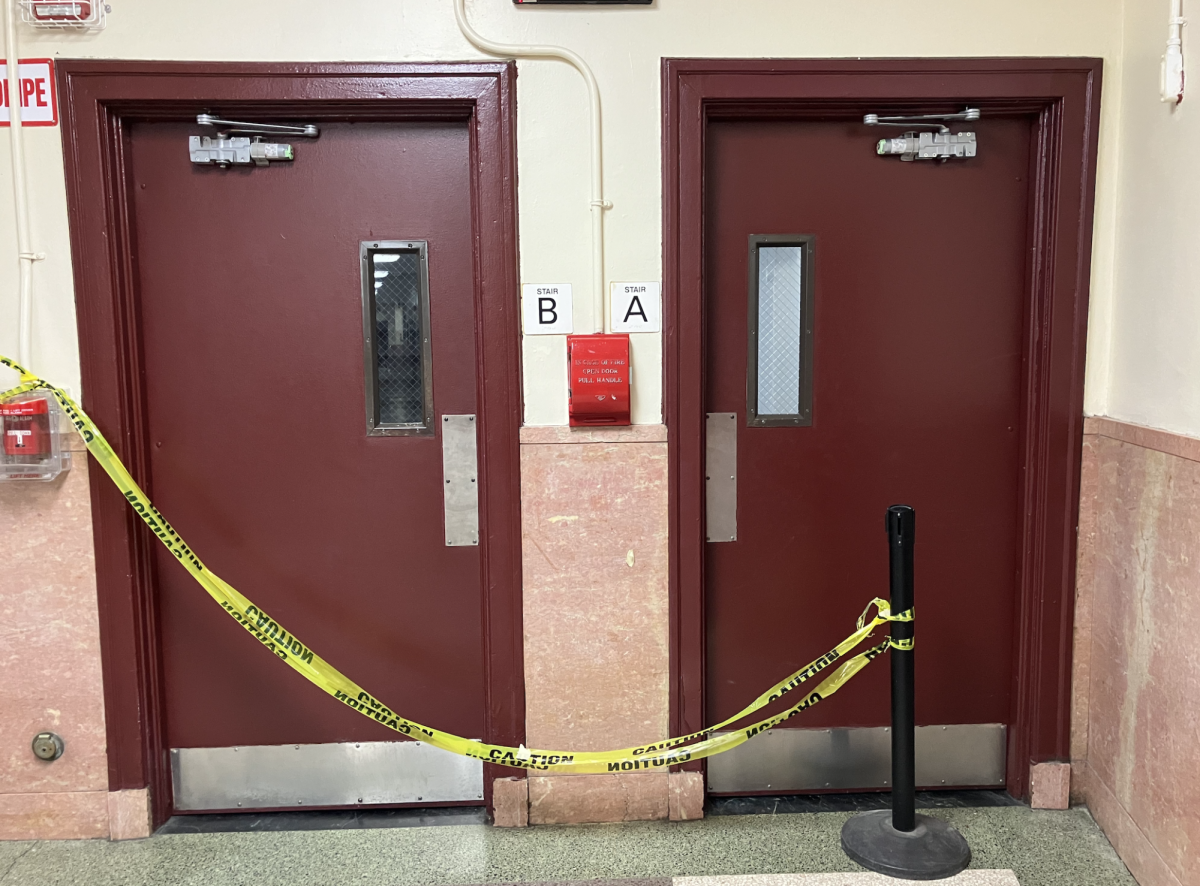Since the start of the 2023-2024 school year, members of the Brooklyn Tech community have noticed a strong sewage smell drifting across the lower floors of the building. This smell has persisted throughout school days, sometimes seeming inescapable, forcing students to reroute their usual walks to class to avoid the odor and causing teachers to complain. This raises the question of what is being done to resolve this issue and how long the school community must endure this stench.
Since the fall, teachers have reported encounters with this sewage-like smell to Physics teacher Mr. Thomas Duncan, chapter leader of the United Federation of Teachers (UFT) at Tech. Some teachers also reached out to the administrative staff, but Mr. Duncan explained, “They will come to me if they feel they are not getting enough traction or resolution.”
With the smell most prominent in the A/B stairwell in the northwest area of the building and the basement, staff and students alike struggle to stay comfortable throughout the day. “It smelled like hot garbage. Literally. Like sewage,” explained Mr. David Schepard, Criminal Procedure and Civil Law teacher, who teaches in the basement, where the smell is strongest.
Math teacher Mr. Ben Morgenroth noted that the smell caused nausea for him. “The smell lingered in my nose even when I was home,” he said.
Tech’s Assistant Principal of Organization and Chief Financial Officer (CFO), Ms. Jennifer Sullivan, sent out an email to all staff on March 12th addressing the smell. “Everyone should anticipate that issues such as these will likely increase as the building continues to age,” she wrote. “This is the reality of life when you live in a building that is a century old.”
Ms. Sullivan explained that the scent’s origin may be connected to Tech’s waste lines, as there are bathrooms located on the northeast corner of the building, near where the smell has been most prominent. There are thousands of traps throughout the building that hold liquid and methane so it does not release a smell while passing through the pipes. Ms. Sullivan mentioned the possibility of a blockage somewhere in the system which may have caused the pipes to release some gas, and by extension, some of the odor that has pervaded the building in order to prevent an explosion.
According to Ms. Sullivan, these blockages are mostly due to the “600-750 feminine hygiene products disposed of in the plumbing system each day.” This is noteworthy given that New York City’s plumbing is not equipped to process feminine products, so much so that the City Government (nyc.gov) website advises those who use feminine products to, “Trash it. Don’t Flush It.”
A challenge with combating the stench is that it is not consistently noticeable. Mr. Duncan recalled going to check out the locations of complaints several times, but, “By the time [he] got to the stairwell, the smell was gone.” To keep track of the smell, Tech’s UFT Industrial Hygienist provided a log to record the time and place when a faculty member noticed the smell.
However, the log contains questions that can complicate reporting, such as the wind speed and humidity at the time the smell was noticed. “It’s a weird form; it asks very specific questions,” explained Mr. Morgenroth. The form also creates hurdles because teachers are often unable to provide accurate answers as they are inside and might only be smelling the odor in passing for a couple of moments.
Not only has the smell been bothersome—even nauseating—but it has led to the closure of bathrooms and stairwells. In the basement, the men’s bathroom was closed for much of the duration of October. The A/B stairwell was closed on and off during March, inconveniencing students who were rushing during passing periods.
Law and Society Major Scarlett Morse (‘25) was late as a result of the stairway closure. “ I have two classes in the basement,” she said.“I had to leave the hallway and walk in the opposite direction to get to my class.”
The administration has been working on a fix for the smell since March. Plumbers from the Department of Education (DOE) have been hired to clean the traps to prevent further backflow. “When that was occuring it smelled really, really bad,” laughed Mr. Morgenroth.
To prevent smells like this in the future, Tech students can do their part by making sure they only flush appropriate items down the toilets, ensuring the plumbing system can run smoothly. Ms. Sullivan reminded the school community that these items do not include “toilet paper, food, goldfish, and whatever else students put in the toilets for their Instagram reels.”









































